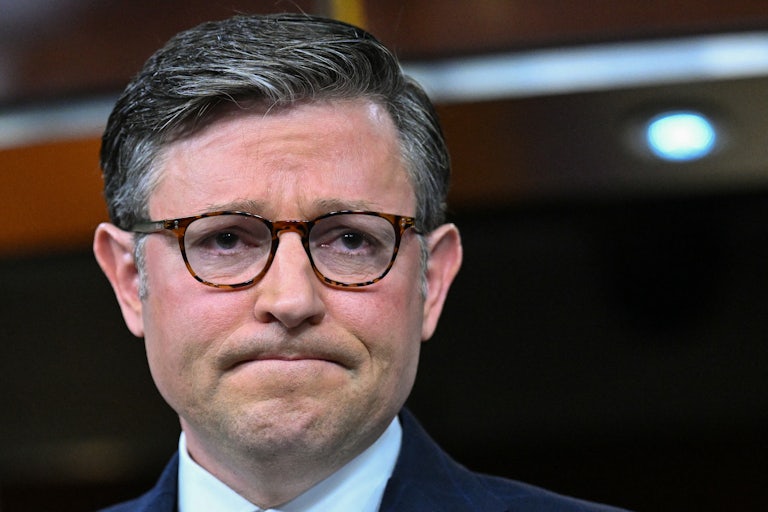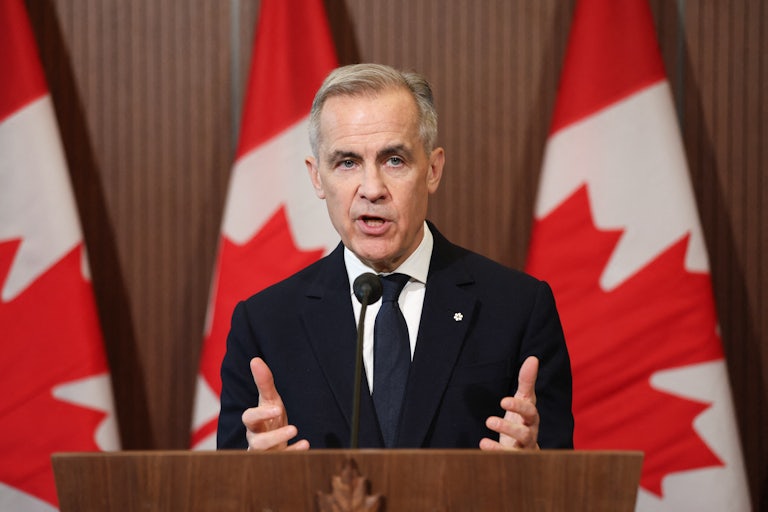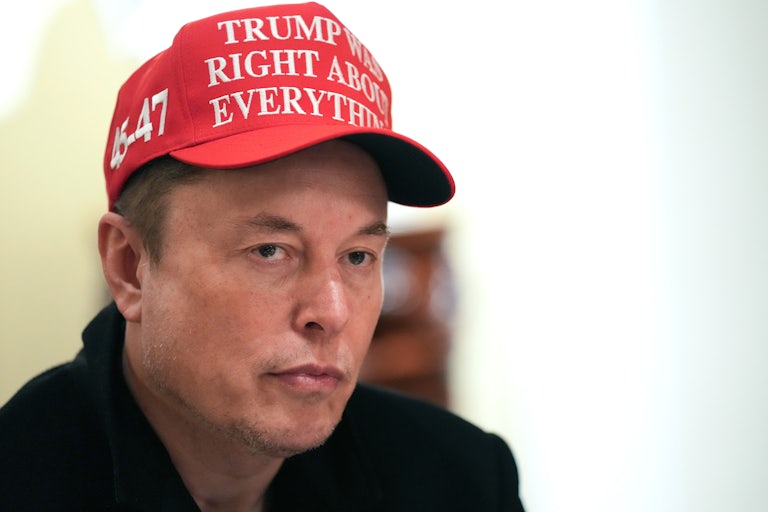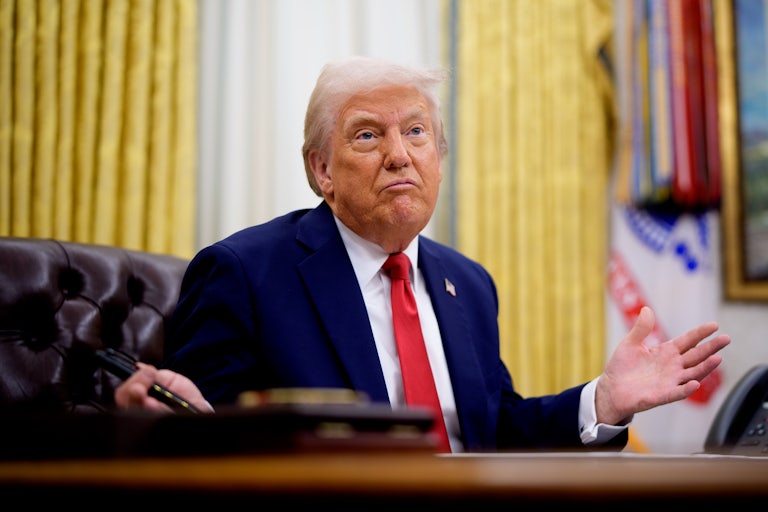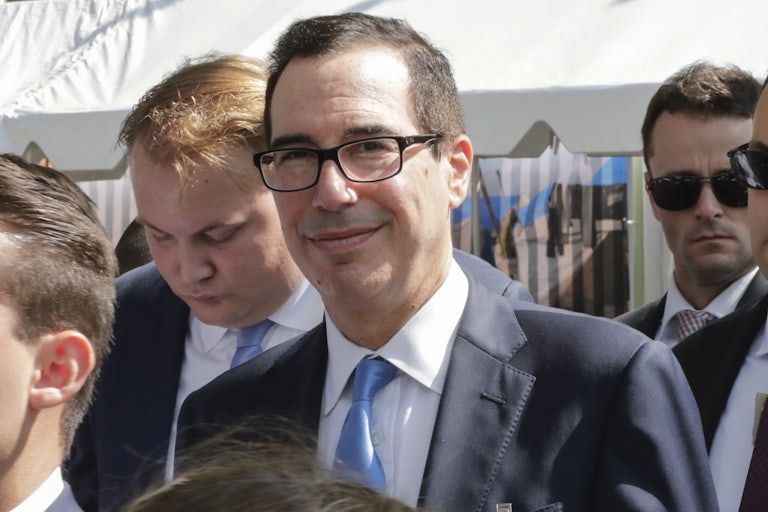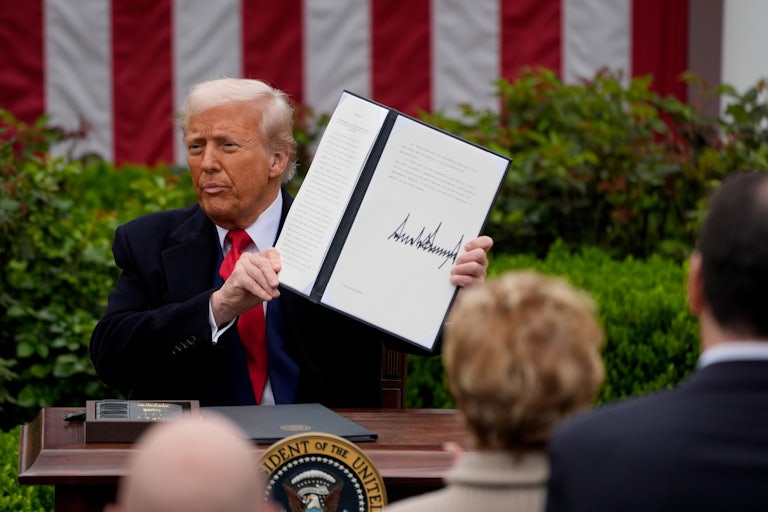Trump: The Economy Crashing Is Good, Actually
Asked about the economic collapse that has resulted from his massive tariffs, Trump said “I think it’s going very well."
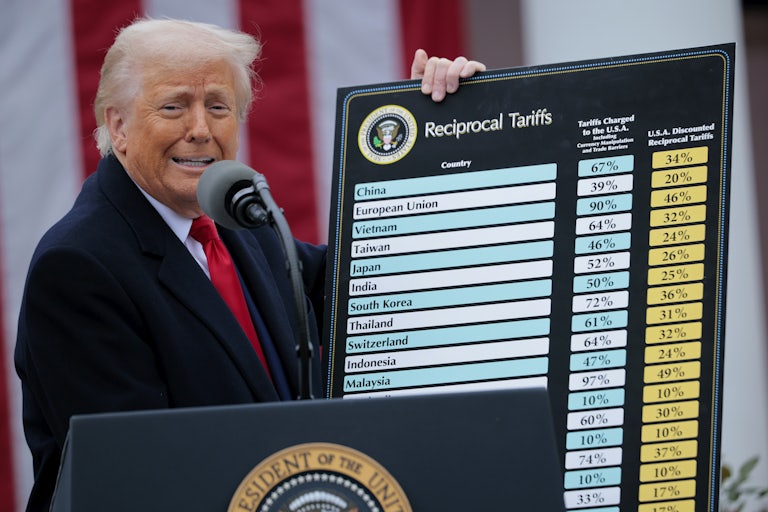
Donald Trump thinks everything is going just fine with his insane tariffs.
In his lone statement about the tariffs Thursday, Trump didn’t seem bothered when a reporter asked him, “The markets today are way down. The worst day in years. Because of the tariffs. So, how’s it going?”
“I think it’s going very well. It was an operation like when a patient gets operated on, and it’s a big thing. I said this would be exactly the way it is. We have six or seven trillion dollars coming into our country, and we’ve never seen anything like it,” Trump said, repeating what he said in a Truth Social post hours earlier. “The markets are going to boom, the stock is going to boom, the country is going to boom, and the rest of the world wants to see, is there any way they can make a deal?”
“They’ve taken advantage of us for many, many years. For many years, we’ve been at the wrong side of the ball, and I tell you what, I think it’s going to be unbelievable,” Trump added.
REPORTER: The markets today are way down. The worst day in years. Because of the tariffs. So, how's it going?
— Aaron Rupar (@atrupar) April 3, 2025
TRUMP: I think it's going very well. It was an operation like when a patient gets operated on. pic.twitter.com/E5Gd2QQplz
Right now, international markets aren’t agreeing with Trump’s ideas, with stock indexes plummeting everywhere. Criticism has come from fellow Republicans and former Trump administration officials, and some companies, such as automaker Stellantis, are laying off employees. Republicans and Democrats in the Senate are even working together on a bill to rein the president in, although it is unlikely to pass.
And the rest of the world isn’t lining up to make deals: Canadian Prime Minister Mark Carney strongly rebuked the tariffs Thursday, saying that America’s economic dominance is over. France’s Emmanuel Macron has called for European companies to stop investing in America. Right now, this “medical operation” is crippling Americans.
